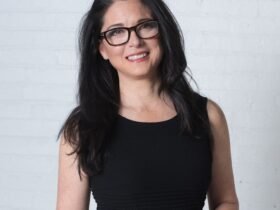So many women carry a quiet pattern of saying “yes” when our whole body is whispering “no.” We agree to extra projects at work even when we’re exhausted. We show up for friends when what we really need is rest. We smooth things over, make ourselves available, and push down our true feelings — all to keep the peace.
This habit often has deep roots. Many of us learned, early in life, that approval and safety came from being agreeable. Saying no felt risky. But as adults, the cost of that pattern is high: burnout, resentment, and a painful disconnection from our own needs.
The good news? Like any habit, it can be unlearned. With small, consistent steps, we can begin reclaiming our time, energy, and voice.
In business, especially, saying yes too often can drain the energy we need for what really matters — our own projects, our growth, our creativity. Learning to honor our limits isn’t just personal self-care; it’s also a business strategy that keeps us focused and resilient.

Photo credit: Freepik
Disclosure: This post may contain affiliate links, meaning if you decide to make a purchase via my links, I may earn a commission at no additional cost to you. See my disclosure for more info.
Why We Default to “Yes”
It helps to understand that people pleasing isn’t about weakness or lack of willpower — it’s often a survival strategy. When we were young, saying yes kept us out of conflict, helped us belong, or earned love. Those old instincts still fire today, even when they no longer serve us.
Recognizing this can be freeing. Instead of judging ourselves for overcommitting, we can meet the pattern with compassion — and then choose differently.
Practical Everyday Scenarios
Sometimes the smallest shifts create the biggest change. Imagine this: you’re asked to take on an extra task at work. Instead of saying “Sure, no problem!” out of habit, you pause. You check in with yourself. Maybe you respond, “I’ll need to look at my current workload and get back to you.” That brief pause buys you space — and space is what lets authenticity emerge.
Or picture a friend inviting you out when you’re exhausted. In the past, you might have ignored your tiredness and gone anyway. But practicing a simple “Thanks for asking — tonight I need some rest, but let’s plan for another time,” shows respect for both your energy and your friendship.
Suppose a client asks for “just one more quick revision,” which actually means another few hours of work. Instead of immediately agreeing, you might reply: “I’d be happy to schedule that as an additional project. Here’s how my rate works.” This way, you protect your time and model respect for your own business.
These little scenarios may feel awkward at first, but over time, they become second nature. Each pause, each honest response, is proof that your needs matter.


Gentle Practices to Try
Practice low-stakes “no’s.” Decline the store upsell or politely refuse an email list you don’t want to join.
Write out phrases ahead of time. Keep a short list of responses that feel authentic, like “Let me think about that,” or “That doesn’t work for me right now.”
Pair boundaries with self-soothing. A hand on your heart, a deep exhale, or a grounding touch can calm the nervous system when saying no feels edgy.
These practices help re-train the body to stay regulated while setting limits.
Shifting from Guilt to Self-Respect
One of the hardest parts of saying no is the guilt that bubbles up. We fear disappointing others or being seen as selfish. But guilt doesn’t always mean you’re doing something wrong. Often, it’s simply a sign that you’re breaking an old pattern.
When guilt shows up, remind yourself: respecting my needs is healthy. Over time, this becomes easier. Boundaries are not barriers — they’re bridges to more authentic connection.
In business, clear boundaries actually build trust. When you say yes only when you mean it, your yes carries more weight — clients, colleagues, and collaborators know they can count on your word.
Moving Beyond People Pleasing
This is a gradual journey, not an overnight fix. You don’t need to overhaul your life in one sweep. Each pause before a yes, each boundary you practice, is a quiet revolution in self-trust. Over time, these choices free up energy that can flow into your work, your creativity, and your joy.
If you find yourself resonating with this journey, you may also appreciate my gentle guide to people pleasing, which explores how these patterns begin and how to soften them with compassion.


Maya Fleischer
Maya is the writer behind Unfold Consciously, a healing space exploring nervous system patterns, somatic practices, and gentle self-growth. She helps sensitive souls move from survival patterns into authentic, embodied living.



















Leave a Reply